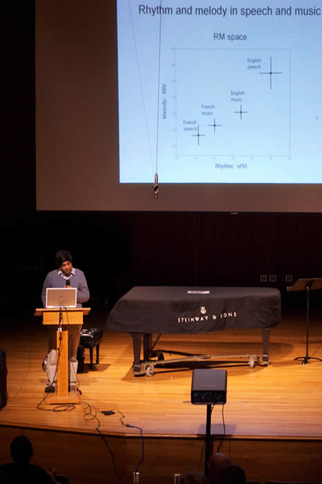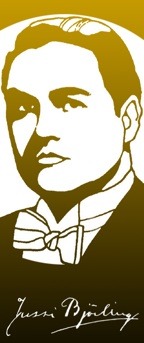Section 4: Applied Lessons (MUS 245/345– 267/367)Music Student Handbook
Section Contents
- Overview
- Music Colloquium, Concert Attendance
- Registration and Audition Procedure
- Performance Requirements for Applied Lessons
- Double Performing Areas
- Practice Facilities
- Music Scholarship Expectations
Overview
All students taking lessons for the first time must audition during Fall Orientation. Students must audition for areas in which they desire to participate: piano and organ students audition to insure their enrollment in the correct level of study, and instrumental and vocal students audition for both lessons and ensemble placement in one hearing. Most students taking voice lessons for the first time at Gustavus should register for MUS 129 (Voice Class) unless they are music scholarship recipients. Current policy articulates that only one applied lesson course be taken each semester. Successful private lesson study at the college level demands considerable preparation. Exceptions to this recommendation are sometimes allowed for music majors with a double performing emphasis. Permission must be obtained from the Chair of the Department to enroll in more than one applied  lesson studio.
lesson studio.
The Music Colloquium, Concert Attendance Requirements
The purpose of the Department of Music Colloquium Series is to offer presentations and performances that will significantly develop the art of music listening in our music majors.
Declared Sophomore, Junior, and Senior Music Majors are required to attend 7 Colloquium Series (CS) events each semester in residence. In addition, Majors shall choose one CS event with a performance each semester and write a 2-3 page, 12 font, double-spaced reflective paper.
All students registered for private lessons are required to attend 7 concerts or recitals (CRs) as an audience member each semester in residence. Click here to read more about this requirement.
Be sure to read more about the requirements for the Music Colloquium Series here.
Registration and Audition Procedure
All new students intending to study privately should register for one 0.50-credit lesson course when registering for Fall Semester and must confirm this registration for lessons by completing a Fall Orientation audition.
Students who have not formally declared a music major or are without a music scholarship will be chaged $560 per half-credit for lessons.
Returning students may utilize computer registration if they took lessons in the same instrument/voice the previous semester. Students who did not study the previous semester or who wish to take a 1.00-credit lesson need to bring a permission slip signed by the Area Coordinator or Chair to the Office of the Registrar in order to register.
Guidelines for First-Time Registration for Applied Lessons (MUS 245-267)
These guidelines will help determine your readiness for individual instruction in applied lessons (MUS 245-267). If you do not think that you can meet the guidelines, please speak to a Department of Music faculty member in your area of interest.
General Considerations
You are probably ready for college-level individualized instruction if you have several years of experience, recently taken private lessons for at least one year, participated in solo contests, or can read music of moderate difficulty.
Audition
Fall Orientation auditions are required for lesson registration in Brass, Guitar, Harp, Harpsichord, Organ, Percussion, Piano, Strings, Voice, and Woodwinds. Typical auditions consist of (1) exercises in major scales or vocalises, (2) presentation of a prepared piece and (3) sight-reading. Students intending to play in a jazz ensemble will be asked to read music and improvise (optional) in the jazz style.
Additional Information For Specific Areas
Classical Guitar: Students must have previous musical experience and be able to read traditional music notation, but reading ability on guitar is not required.
Jazz Guitar: This course is intended for the more advanced guitarists who have privately studied guitar, can read traditional music notation, read chord symbol notation, and are able to improvise over a Blues progression. Questions concerning this area should be directed to Prof. Rick Orpen (ext. 7348, orpen@gac.edu).
Piano: Applied lessons in piano are intended for those with background for college-level private piano study. A minimum of four to six years of private study is the recommended background (study should have included the past four high school years). The audition for piano study should consist of two works in contrasting styles. In addition, the student will be asked to play scales and perform sight-reading exercises. Questions regarding piano auditions should be directed to Prof. Yumiko Oshima-Ryan (ext. 7303, yumiko@gac.edu) or Prof. Esther Wang (ext. 7361, ewang2@gac.edu).
Performance Requirements for Applied Lessons
Students in applied lessons are expected to perform in studio classes and area seminars scheduled throughout the semester by the private instructor and/or area coordinator. At the end of each semester, each student is expected to perform an end-of-semester audition (or “jury”) for a panel consisting of his or her instructor and other area faculty. The purpose of this formal presentation is to assess student progress throughout the semester. The frequency, expectations, and format of studio classes, area seminars, and end-of-semester auditions (juries) vary by area; applied lesson instructors will provide detailed information for students in their courses.
Double Performing Areas
Students with more than one performing interest (i.e., flute and piano or cello and voice) are encouraged to audition in each area. It is possible to be active in more than one area, although one will probably have to prioritize between major and minor involvements. For example, it is possible to sing in a choir (0.25) and play in a concert band (0.13), or play in a concert band (0.25) and sing in a choir (0.13), or play in orchestra (0.25) and a jazz ensemble (0.13), etc. The Department of Music faculty are more than willing to assist students in recognizing and understanding options; please do not hesitate to ask for advice at any time. With regards to taking two classes of applied lessons on different instruments, only one 0.50-credit lesson registration is allowed per semester unless special approval is given by the Chair of the department. Remember that the lesson fee will be charged for the second set of lessons. Music Education Majors are not charged for lessons on their secondary instrument, which is part of their curriculum.
Practice Facilities
Regular practice is the secret to success as a performer. Practice rooms are located on all three floors of the music building. They are available for student use during regular building hours (See: The Facility, Building Hours in Section 1). Please note that busiest times during the semester are 3:00 PM to 4:30 PM daily, so it may be best to arrange for practice time during other hours. Students may store their music and instruments in the music building. Instrumentalists will be issued a locker at the time of their auditions; vocalists and keyboard players can arrange for a locker by contacting the Music Office and paying a $5.00 key deposit (See: Student Storage Space in Section 1).
Music Scholarship Program
 Guidelines for Jussi Björling Scholarship and Gustavus Music Award Students
Guidelines for Jussi Björling Scholarship and Gustavus Music Award Students
- Register each semester in residence for 1) lessons and 2) the ensemble that the Faculty in your area (choral, keyboard, Instrumental) deems appropriate (normally determined by fall auditions) on the scholarship instrument/voice. The Jussi Bjorling Scholarship program was primarily designed to support our major ensembles:
- Gustavus Wind Orchestra
- Gustavus Wind Symphony
- Gustavus Symphony Orchestra
- Gustavus Jazz Lab Band
- Gustavus Choir
- Choir of Christ Chapel
- Accompanist roles, as assigned, can count toward a portion of your ensemble requirements. See "Other" heading below.
- Demonstrate progress in lessons at area end-of-semester evaluations and verify successful ensemble participation each semester for re-approval
- JBS award winners are expected to perform in a public solo or chamber music performance during the sophomore, junior and senior years (FAVR, Christ Chapel). GMA award winners are encouraged to perform in a public solo or chamber music performance during their time at Gustavus (FAVR, Christ Chapel)
Other
- Pianists, organists, and guitarists may need to register for an ensemble outside of their area due to limited availability of ensemble positions on their instruments. Keyboardists may use accompanying to fulfill the ensemble participation requirement
- Area Coordinators will address any exceptions.
Multiple Area Awards
- If two Scholarships are awarded, the student will choose which area to begin lessons and will have the option after consulting with Area Music Faculty to change lessons to the other area at the beginning of a subsequent year. The student chooses the area in which she will do a fall audition and the Area Music Faculty placement determines the ensemble registration. If the student decides to audition in the 2 areas and there are placements by 2 different Area Music Faculty panels, the student will make the choice of ensemble. Special circumstances can be addressed to the Chair of the Department.
- Double Lesson registrations (taking two sets of lessons during the same semester) are exceedingly rare, require the approval of the Chair of the Department, and can occur only after the first year and only for one or two semesters.
Off-Campus Concerns
For students completing coursework off-campus:
- Students abroad for one semester will continue to receive the Björling Music Scholarship amount for that semester.
- Students abroad for a full academic year will continue to receive the Björling Music Scholarship for one semester and are granted a Leave-of-Absence for the second semester so that he or she returns to full status when returning the subsequent semester.
- A student may receive a lesson fee waiver while abroad if he or she registers for applied music as part of the course of study.
- A student who takes a Leave-of-Absence from Gustavus for any reason may request a one-year hold on his or her music scholarship.
- An education student will continue to receive the Björling Award while student teaching; in addition, he or she may return to full status when returning to campus the subsequent semester; GMA award winners automatically return to full status after student teaching in the fall of their senior year.
Loss of a Music Scholarship
The following may result in the loss of a Björling Music Scholarship or a Gustavus Music Award:
- A student will forfeit the scholarship and/or lesson award at any time by not registering for lessons in a given semester and/or by failing to participate in the assigned ensemble (this will result in the immediate loss of the financial advantage of the award).
- The student who does not receive a grade of B or better in applied lessons is automatically placed on probation and has one semester to improve the quality of his or her work; a second semester of inferior work is considered grounds for forfeiture of the award.
- The student who does not receive a grade of B or better (P if registered for 0.00 credit) in an ensemble is automatically placed on probation and has one semester to improve the quality of his or her work; a second semester of inferior work is considered grounds for forfeiture of the award.
- The student who does not satisfactorily complete a semester of study in either lessons or ensembles will be asked to attend a meeting including the private instructor, the Area Coordinator, the ensemble director, and the Chair of the Department; appropriate outcomes may include the loss of the scholarship or probation.
- There are circumstances which may result in the immediate imposition of probation; if the semester in question is not concluded satisfactorily, the loss of the scholarship may result.
Revised: March, 2016